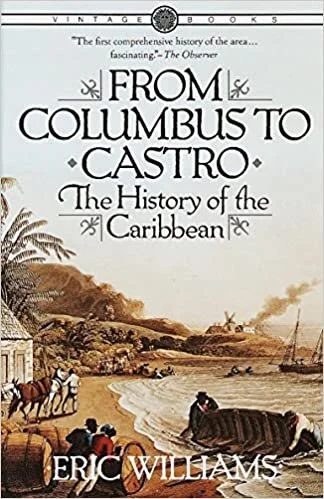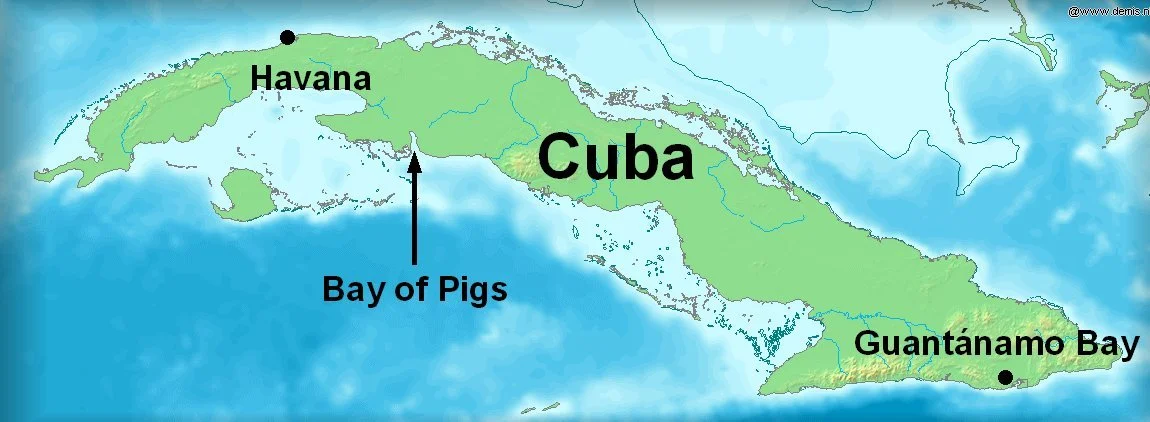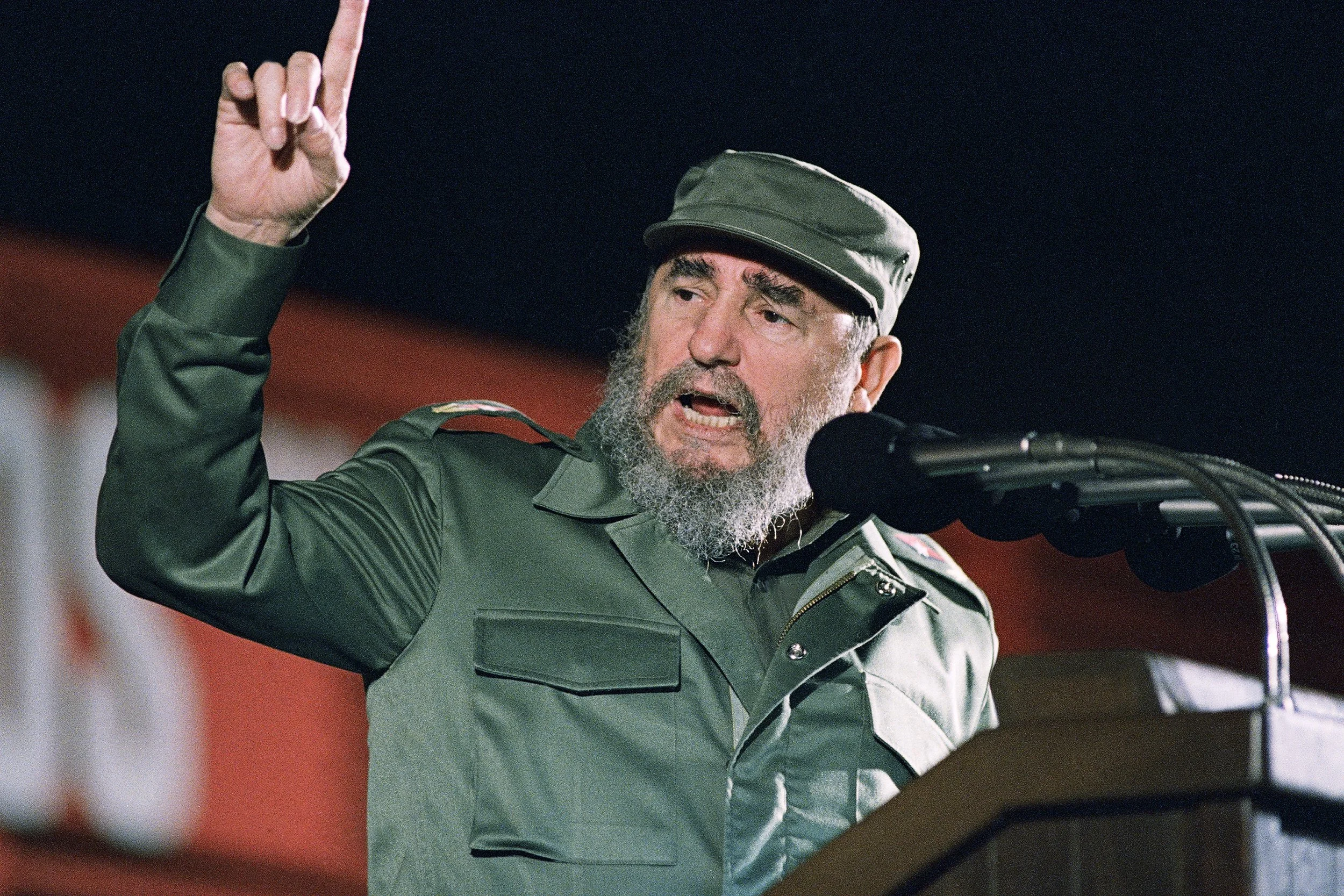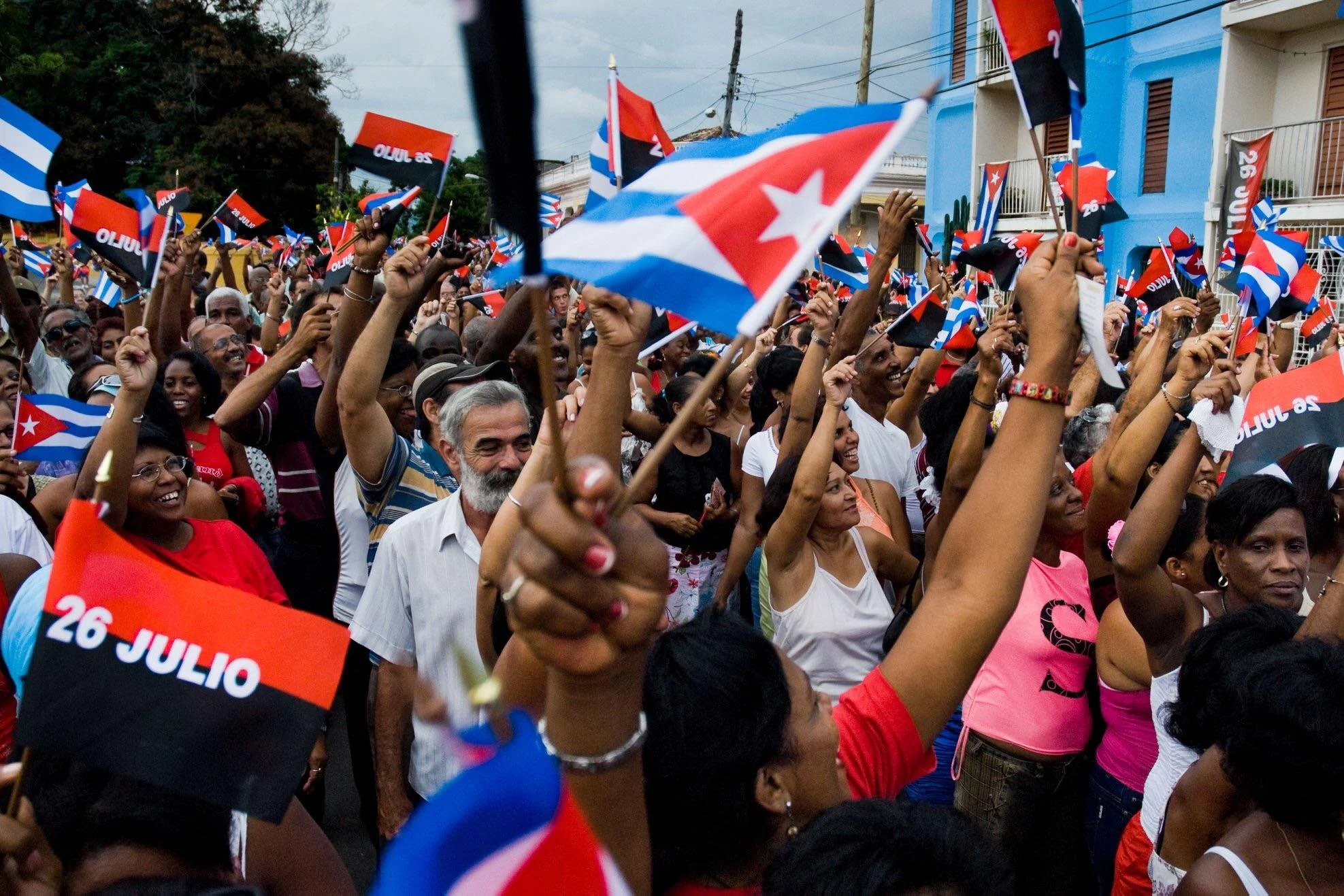
Cuba Must Live!!
The 26th of July Movement
Photo: Wikipedia
Richard S Dunn July 24,2022
This Tuesday July 26, 2022 will mark the 69th anniversary of the attack on the Moncada Barracks in Santiago de Cuba on July 26 1953, by a group of Cuban activists, patriots, and revolutionaries. This attack signaled the beginning of the end for the repressive and reactionary regime of Fulgencio Batista. The group, led by Fidel Castro, a young law student at the University of Havana, set out to put an end to the corrupt, fascist, and murderous regime of Batista, who ruled Cuba with “iron fists” to maintain the rule and control of capital, over the life of the Cuban people. The multinationals operating in Cuba such as Coca Cola, The United Fruit Company and others had the support of the United States’ Administration; even the mafia had a pivotal role in the corruption and political life of the country of Cuba.
Pre-Revolutionary Cuba
Space does not allow for a lengthy discussion on the socio-economic conditions in Cuba prior to 1959. It is important however, to establish some type of context as to the basis, and what provided the impetus for organizing and executing the attack on the Moncada Barracks, by this young group of revolutionaries. United States corporations and the local oligarchy owned and controlled the majority of Cuba’s sugar plantations, cattle ranches, the mines, and utilities. The United States’ continued hostility towards Cuba is retaliatory. The late Prime Minister of Trinidad & Tobago, Dr. Eric Williams, gives a detailed and revealing outline in his book “From Columbus To Castro – The History of The Caribbean.”
The Late Former Prime Minister of Trinidad & Tobago, Dr. Eric Williams’ Book
Dr Williams writes: “75 percent of rural dwellings were huts made from the palm tree…The peasantry was isolated on account of the state of the roads. There was one doctor for more than 2,000 persons in the rural areas…Only 4 percent of the Cuban peasantry ate meat as a regular part of their diet; while 1 percent ate fish, less than 2 percent eggs, 3 percent bread, 11 percent milk; none ate green vegetables.” This deplorable condition he continues: “Over 50 percent of Cuba’s rural dwellings had no toilets of any kind…85 percent had no running water; 91 percent had no electricity.” The sugar companies of the United States were in control of 75 percent of the arable lands; telephone, electricity, rail and sugar production, were all dominated by American companies. According to Dr. Williams this state of affairs led to the following factual conclusion: “ Cuba’s backwardness was largely due to the fact that it was at the mercy of external forces on the world market.”
The Moncada Barracks, site of the July 26, 1953 attacks, by the Cuban Revolutionaries - Photo: ThoughtCo
It is obvious that Cuba was a dependency and victim to the United States’ multinationals with support from the Batista government, and they were quite comfortable with depleting and usurping the resources of the country, regardless of the human costs. Added to this is the corruption and dictatorial governance of the Batista regime who used repressive means to control and maintain the rule of capital, to which they were a beneficiary and crush any type of dissent. There comes a time when such deplorable and potentially volatile conditions must come to a “head.” All peace-loving and democratic people will rise up and “break the back” of immoral and repressive governance. Eric Williams reported that a French journalist reporting on the subsequent victory of the revolution reported: “Fidel Castro’s victory was no real military victory. It was primarily a moral victory of the people…Castro did not destroy the enemy. The latter collapsed because it was rotten to the core.”
Victorious entry into Havana by Cuban Revolutionaries, January 1, 1959 - Photo: YouTube
Reaction of United States Imperialism
The failure of the attack on the Moncada Barracks was just a brief setback for the revolutionary forces. After their release from prison, they regrouped and returned to Cuba from Mexico in 1957, where they waged a valiant and successful war against the Batista forces. The revolutionaries ultimately succeeded in the defeat of the army, and the victorious march by the revolutionaries into Havana on January 1st 1959. Ever since the triumph of the Cuban Revolution, United States imperialism has carried out successive and unrelenting attempts to destroy and disrupt the Cuban people’s revolution and set the socio-economic clock back, to pre-revolutionary Cuba, by returning the country to the multinationals and develop local oligarchs. Upon ending diplomatic relations with Cuba in 1961, the first of what was to become a Foreign Policy obsession of the United States, to overthrow the Cuban government including assassination attempts, began with The Bay of Pigs invasion (invasion de Playa Giron) in April of 1961. The invasion was led by the CIA with a group of voluntarily exiled Cubans (1,400) trained by the United States; the group was roundly defeated within 24 hours by the Cuban military forces.
Bay of Pigs, southwest Cuba; site of failed invasion by CIA trained Cuban exiles - Photo: Wikipedia
By the end of 1961 President John F. Kennedy approved an espionage and sabotage campaign against Cuba called Operation Mongoose. On October 6th 1976, a Cubana Airline aircraft left Barbados on a routine flight and crashed shortly after killing all 76 persons on board. Earlier that year there was an explosion from a bomb placed in a suitcase in Jamaica, shortly before it was loaded on an aircraft. This incident was two-fold, one to sabotage and pressure Cuba and two, to embarrass and coerce the Manley government to sever ties with Cuba. This was part of the destabilization campaign by the CIA to topple the progressive Manley Government. The mastermind of the Cuban airline bombing Luis Posada Carriles, who had a long relationship with the CIA, was noticeably sheltered in the United States despite being considered a terrorist by the FBI, and was never brought to justice or extradited to stand trial for his act of terrorism, which has been documented and is public knowledge.
Late Former Cuban President Fidel Castro - Photo: North Country Radio
In regard to assassination attempts, Peoples Dispatch has reported that there had been 638 attempts against the life of late President Fidel Castro. There has never been any assassination attempts by the United States against all the tyrants and despots that were and are in power in Latin America, The Caribbean and Africa. Whether it was Agosto Pinochet of Chile; Anastasio Somoza Debayle of Nicaragua; Jacobo Arbenz of Guatemala; The Shah of Iran; Menachem Begin or Golda Meir of Israel; P.W. Botha or F.W. de Klerk of South Africa; Joseph Kabila or Felix Tshisekedi of the Congo or Yoweri Museveni of Uganda; the United States have supported or propped up these despots and have never once instituted any sanctions or listed them as terrorists or the tyrants that they were, and some still are.
The demonstrations in Cuba last summer had nothing to do with governmental mismanagement or “failure.” The demonstrations are a result of the illegal, immoral, and unilateral embargo imposed by the United States which places unreasonable and additional hardships, on a society that is still building the intent and objective of the 26th of July Movement: a truly equalitarian society. Fidel Castro was prophetic in his speech delivered on January 8th 1989 marking the 30th anniversary of the revolution, where in part he said: “if historical circumstances have prevented imperialism from liquidating socialism by war, imperialism has not renounced the idea of liquidating socialism by means of subversion, corrosion, and, if possible, destruction of the socialist system from within.” The blockade has been unsuccessful for 61 years and have become globally unpopular; just last year 184 countries of the UN voted in favor of lifting the blockade. To further bolster its “regime change” obsession with Cuba, the United States has again put Cuba on the list of “state sponsors of terrorism,” using the State Department’s rationale that Cuba has provided support of international terrorism. To this day, not one agency of the government has ever been able to provide any empirical evidence, that Cuba has ever been involved in any such activity.
The Legacy of the 26th of July Movement: Triumphs of The Cuban Revolution
One of the most telling achievements of the Cuban Revolution is its ability to provide fundamental social needs of its people in healthcare, education, affordable housing and vaccine developments. Further, Cuba has made unselfish sacrifices internationally in the ideological and material support for the National Liberation Movements and progressive socio-economic developments in Africa, Latin America, and the Caribbean. Illiteracy has technically been reduced to zero and education is still free from basic school to university.
The revolution has considerably reduced the infant mortality rates; has almost eradicated Hepatitis B through its vaccines developed locally through its Center for Genetic Engineering & Biotechnology. By the end of 2018, the infant mortality rate was reported at 4 deaths per every 1,000 live births. Cuba Si is reporting that the “child vaccination schedule includes 11 vaccines against 13 diseases.” During the Pandemic, Cuba was able to develop three vaccines within a year, despite the difficulty in buying raw materials from outside sources because of the embargo. At last count Cuba has vaccinated upwards of 90% of its population with at least one dose; many developed countries have yet to meet this milestone. The country was also able to manufacture 250 ventilators that were distributed to hospitals all over the country; and they were working on a second batch.
The most indelible legacy of the 26th of July Movement and its child the Cuban Revolution, is Cuba’s consistent and principled practice of international solidarity with the oppressed peoples of the world. Despite its own difficulties and challenges Cuba has sent medical personnel, teachers, technical experts, and military assistance to whomever have requested their help. Cuba has also opened its doors to the training of thousands of doctors and nurses without cost to the recipient country, in Africa, the Caribbean and Latin America. These internationalist gestures Cuba has done at great national and personal costs, including the loss of lives on battlefields alongside compatriots fighting apartheid and colonialism in Southern Africa. Cuba’s technical experts contributed to the upgrading of the Maurice Bishop International Airport (formerly Point Salines Airport) in Grenada; they facilitated the design and building of micro-dams for irrigation during the drought season and, the construction of the Jose Marti Technical High School in Jamaica.
Turnover of the Jose Marti Technical High School in St. Cathrine Jamaica, December 1976 - Photo: The Jamaica Gleaner
From the beginning of the revolution, Cuba’s global impact and achievements did not go unnoticed; Dr. Eric Williams continues: ”In 1959 Cuba, as the first Caribbean country to challenge successfully the power of the U.S.A. in the hemisphere, sought to establish a regime based on national independence and social justice, including racial equality. She is the first Caribbean country to have mobilized the entire population in the task of national reconstruction.”
Cuba Must Live!!
The Cuban Revolution has shown the inherent immorality of capitalism that despite limited resources, Cuba is able to provide basic social needs for its people in healthcare, education, affordable housing, and a society based on economic and social justice. The revolution has exposed the irony and antagonistic relationship of social production but private accumulation, which intensifies capitalism’s veracious greed above the needs of the people. The 26th of July Movement holds tremendous lessons in the subject of struggle and the role of the working class and democratic forces in the Liberation struggle. Cuba continues to be a bulwark among developing countries struggling to rid their respective country from the choke hold of global capitalism and United States imperialism in particular. Cuba must live, Cuba must be allowed to develop and prosper; Cuba must not be coerced into becoming a lackey of the United States. Long Live The 26th of July Movement!! Long live the Cuban Revolution!
26th of July celebration in Havana, Cuba - Photo: Reddit
Richard Dunn can be reached at: contact@makingitplain.net








